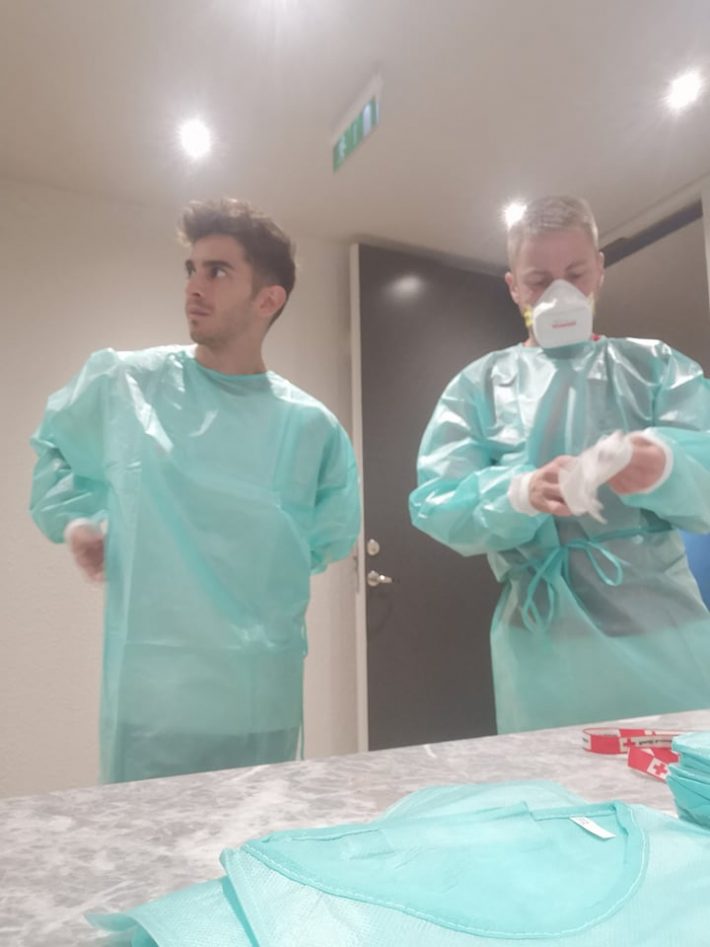The recent pandemic (Covid-19) has impacted education systems in universities around the world. The impact has been dramatic for institutions, academics, and students looking for workable short term solutions for online teaching and learning. The unique challenge facing higher education encouraged DEN to look for opportunities to stay in contact with students using online facilities. Through the academic initiative, we invited students to meet and organise feasible and appropriate projects at this time. Using Inside Westminster we have agreed that students will write an article and or provide a 5 minutes video of their reflection and experience of Covid-19. We have encouraged students from all over the world to express their stories and share them with each other, hoping that this would provide a channel not only to learn but also to engage with each other. Hence, the following articles in this section are students’ reflections/experiences of Covid-19.
The spread of COVID-19 instantaneously changed how many of us live our lives. For bad or good, from the way we interact with each other to how we travel or conduct business, societies across the world have adapted and transformed to carry on with normality. As an international volunteer, I was involved in implementing COVID related changes in projects at the Icelandic Red Cross (RKI), to ensure the safety of both staff members and clients. I work mainly on integration projects for people with international protection in Reykjavík, to reduce social isolation and contribute to the integration process of those clients into Icelandic society. This is largely achieved through social activities, workshops, information sessions, seminars, focus groups, one-to-one interviews… so how do we do this when meeting clients face-to-face is no longer an option?
When the Icelandic government announced the ban on gatherings for over twenty people, and the two-meter rule in all spaces, the way we operated our projects had to be re-organised. We could no longer host large groups of people at the facilities in Reykjavík, so communications with clients were mostly carried out via phone and email. Additionally, psychosocial support became an even more integral part of the job. When meeting clients in real life you can see how they interact, you might be able to tell if they look tired or stressed by the way they express themselves, you get a better grasp of what their physical and emotional state is. However, when communication is done through a mobile phone or typing in a computer you lose proximity with the client, and you need to find other ways to fill that void. Calls to clients were made more regularly, online meetings via platforms such as Zoom or Skype became the norm to reduce social isolation. It all came with its challenges since not all clients own a computer or know how to use one. We had to get creative to be able to deliver information to clients with language and technological barriers. It was a learning process for both our clients and the organisation.
The Icelandic government was very quick in reacting to the recommendations of professional advisors and in developing an appropriate response. RKI has also played a crucial role in the response of the spread of COVID-19 cases in Reykjavík.
In order to avoid overcrowding in hospitals and deliver the best health service to patients infected with the virus, the government rented private hotels and converted them into quarantine centres. Two of these centres Fosshotel Lind and Rauðara have been managed by RKI staff members and volunteers. Both centres host people in quarantine who are waiting to be tested and who cannot quarantine at their homes due to living with others in risk groups (older adults, people with a chronic illness), and patients who have been diagnosed with the virus but their health condition does not require them to be in hospital.
Patients who have been diagnosed with the virus and sent to the hotel facilities spend a minimum of fourteen days in isolation and are unable to leave their rooms or have physical contact with anyone besides the trained staff and volunteers. In order to mitigate confinement and solitude, RKI have been providing psychosocial support through specialised psychologists and nurses. Staff members and volunteers are responsible for taking in new admissions and discharging of guests, providing food meals and any other supplies necessary, as well as mediating between the guests at the hotel and any requests from the outside.
As a member of the quarantine facility team, the main challenge I encountered was maintaining the human connection with the guests. Many of them are travellers, asylum seekers and refugees, often entire families with young children, arriving in Iceland and sometimes not fully understanding the scale of the problem. Following protocol requires us to wear full protective clothing when visiting guests in their rooms, this includes: a long gown; face mask; goggles; gloves; and a type of medical cap. Protective equipment is, of course, crucial to performing our jobs, but nevertheless I have felt the invisible gap that is created between us trained response personnel in full PPE, and the isolated guests in a quarantine facility in a new country. It can be quite a process to build trust in order to better serve people’s needs.
Overall, the response from the Icelandic government has been very proactive, keeping the number of infections low. Iceland´s unique geolocation with very few points of entry, and Iceland having the lowest population density in Europe (Directorate of Health 2020), have also contributed to it being one of the safest countries to be in during the pandemic.
By: Jordi Cortes Espasa, BA (Hons) Development Studies and International Relations, 2014-17.
